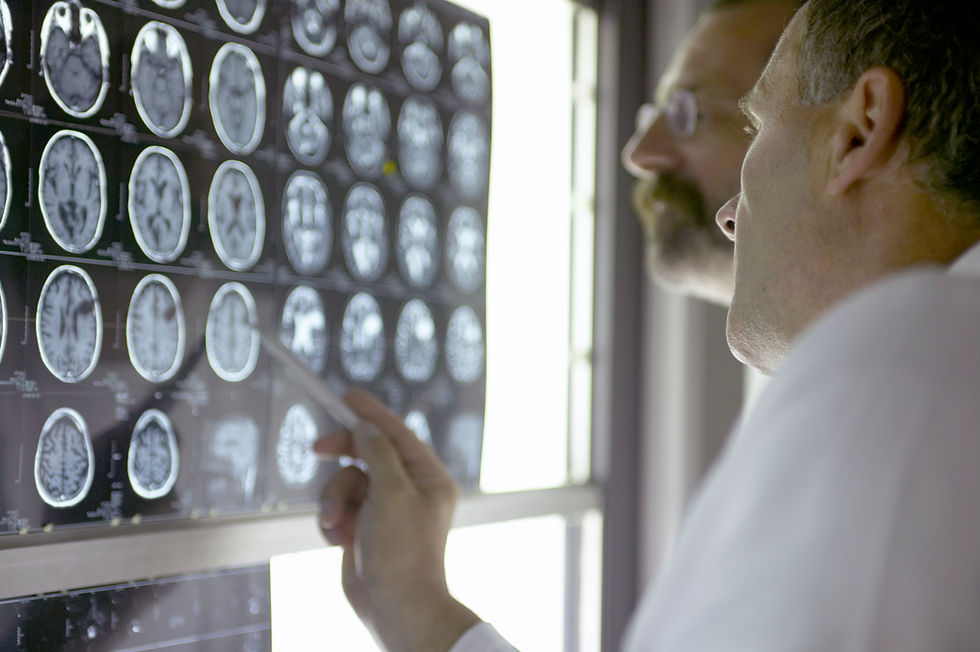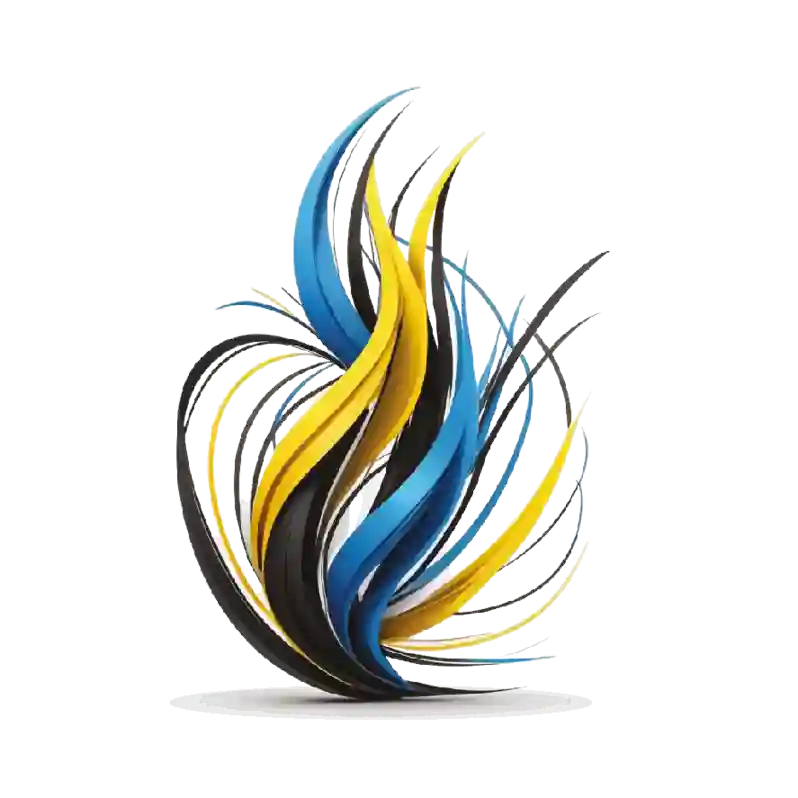Exploring the Potential of Acupuncture for Functional Neurological Disorder (FND)
- Nazan Garcia
- Aug 19, 2023
- 4 min read
Updated: Oct 14, 2025
FND symptoms are complex and may have multifaceted origins, making the holistic approach of acupuncture appealing to some patients.

Introduction
Functional Neurological Disorder (FND) is a complex condition that affects the nervous system, leading to a range of troubling symptoms such as movement disorders, sensory issues, and cognitive impairments (Fobian and Elliott, 2019). While traditional medical interventions play a crucial role in managing FND, complementary and alternative therapies like acupuncture have gained attention for their potential benefits. In this article, we'll delve into the world of acupuncture and its potential to help individuals with Functional Neurological Disorder. We'll explore the question: Can acupuncture provide relief and improve the quality of life for those living with FND?
Understanding Functional Neurological Disorder (FND)
Functional Neurological Disorder, previously known as Conversion Disorder, is a condition where individuals experience neurological symptoms that cannot be attributed to a clear underlying organic cause. These symptoms can be debilitating and may include movement disorders, tremors, paralysis, seizures, sensory problems, and cognitive issues. The exact cause of FND is not fully understood, but it is believed to result from a combination of psychological, social, and physiological factors (Fobian and Elliott, 2019). Traditional treatments for FND often involve psychotherapy, physical therapy, and medication. However, due to the complex nature of the disorder, patients and healthcare professionals are increasingly exploring complementary approaches like acupuncture to alleviate symptoms.
The Basics of Acupuncture
Acupuncture is an ancient Chinese healing technique that involves inserting thin needles into specific points on the body. These points are believed to be connected by pathways known as meridians, through which vital energy, or "qi," flows. By stimulating these points, acupuncture aims to restore the balance of qi and promote the body's natural healing processes. While acupuncture has been primarily associated with pain management, its potential benefits extend beyond that to address a wide range of conditions, including neurological disorders like FND.
Can Acupuncture Help with Functional Neurological Disorder?
The question on many minds is whether acupuncture can provide relief for individuals struggling with the complex symptoms of FND. While scientific research on acupuncture's effectiveness for FND is still evolving, there is a growing body of evidence suggesting its potential benefits:
Pain Management: Acupuncture is renowned for its pain-relieving properties. Many FND patients experience chronic pain alongside their other symptoms. Acupuncture's ability to stimulate the release of endorphins and modulate pain pathways could offer much-needed relief (Zhao, 2008)
Stress and Anxiety Reduction: Stress, anxiety and emotional factors often exacerbate FND symptoms. Acupuncture has been shown to have a calming effect on the nervous system, potentially reducing stress levels and anxiety and improving overall well-being (Sakatani et al., 2016; Yang et al., 2021)
Neurological Regulation: Acupuncture's impact on the nervous system could help regulate neural pathways and neurotransmitter activity. This, in turn, might contribute to better control over involuntary movements and other neurological symptoms (Zhang, Wang, and McAlonan, 2012).
Holistic Approach: Acupuncture is often considered a holistic therapy, addressing both physical and emotional aspects of health. FND symptoms are complex and may have multifaceted origins, making a holistic approach appealing to some patients.
Incorporating Acupuncture into FND Management
If you're considering acupuncture as part of your FND management plan, it's crucial to consult with your healthcare provider first. A comprehensive approach that combines traditional medical interventions with complementary therapies can offer a more holistic strategy for managing FND. Your healthcare provider can help you determine if acupuncture is a suitable addition to your treatment plan and can refer you to a qualified acupuncturist.
Conclusion
Functional Neurological Disorder is a complex condition that challenges both patients and healthcare professionals. While traditional treatments remain essential, complementary therapies like acupuncture offer a new avenue of hope for symptom relief and improved quality of life. The potential benefits of acupuncture, from pain management to neurological regulation, make it a therapy worth exploring, especially under the guidance of medical experts. Individuals with this condition may find solace in the age-old practice's potential to ease their journey towards wellness.
Considerations and Caveats
While acupuncture holds promise as a complementary approach for FND, it's crucial to approach it with caution and realism:
1. Individual Variability: Acupuncture's effects can vary widely from person to person. Some individuals may experience noticeable benefits, while others may not experience significant changes.
2. Complementary, Not Alternative: Acupuncture should not replace conventional medical treatments for FND. It should be seen as an adjunct therapy to be used alongside evidence-based treatments.
3. Consultation with Healthcare Providers: Individuals considering acupuncture for FND should consult their healthcare providers. Medical professionals can provide guidance, ensure safe interactions with other treatments, and tailor recommendations to the individual's specific needs.
4. Scientific Research: As of now, the scientific evidence regarding acupuncture's effectiveness for FND is limited. Research in this area is ongoing, and more studies are needed to establish its role in managing FND symptoms.
References
-Fobian, A.D. and Elliott, L., 2019. A review of functional neurological symptom disorder etiology and the integrated etiological summary model. Journal of Psychiatry & Neuroscience, 44(1), pp.8–18.
Sakatani, K., Fujii, M., Takemura, N. and Hirayama, T., 2016. Effects of Acupuncture on Anxiety Levels and Prefrontal Cortex Activity Measured by Near-Infrared Spectroscopy: A Pilot Study. In: C.E. Elwell, T.S. Leung and D.K. Harrison, eds. Oxygen Transport to Tissue XXXVII, Advances in Experimental Medicine and Biology. [online] New York, NY: Springer New York. pp.297–302.
Yang, X., Yang, N., Huang, F., Ren, S. and Li, Z., 2021. Effectiveness of acupuncture on anxiety disorder: a systematic review and meta-analysis of randomised controlled trials. Annals of General Psychiatry, 20(1), p.9.
Zhang, Z.J., Wang, X.M. and McAlonan, G.M., 2012. Neural acupuncture unit: a new concept for interpreting effects and mechanisms of acupuncture. Evidence-based complementary and alternative medicine.
-Zhao, Z.Q., 2008. Neural mechanism underlying acupuncture analgesia. Prog Neurobiol, 85, pp.355-75.
Acupuncture Clinic in North West London
Discover the beneficial effects of acupuncture for FND symptoms in a clean and hygienic Clinic near you.
Living in London? Book your Acupuncture appointment today!




Comments